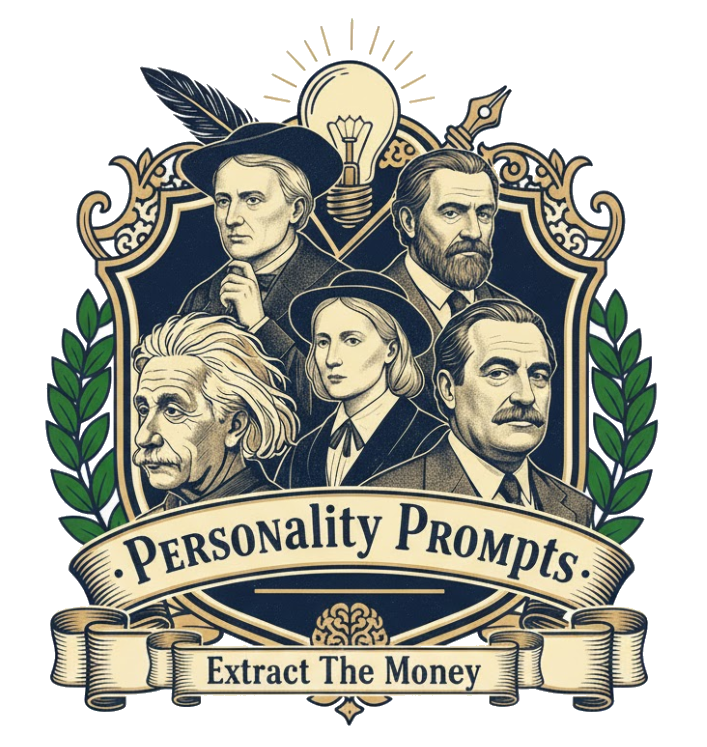Satya Nadella didn’t reinvent Microsoft’s products — he reinvented its mindset.
Where others chased disruption, he cultivated empathy, collaboration, and learning — transforming one of tech’s slowest giants into an agile cloud powerhouse.
To understand Nadella, you have to think like a listener who leads — turning curiosity into culture and culture into strategy.
1. The Core Archetype: The Empathetic Transformer
Nadella’s leadership is rooted in emotional intelligence — balancing humility and vision.
He believes transformation begins with people, not products.
His philosophy can be summarized as:
“Our industry does not respect tradition — it only respects innovation driven by empathy.”
He redefined Microsoft’s culture from “know-it-all” to “learn-it-all,” proving that emotional intelligence can drive technical excellence.
2. The Big Five Traits: The Engine of Cultural Renewal
| Trait | Level | How It Shows Up |
|---|---|---|
| Openness | High | Encourages curiosity, learning, and inclusion as organizational strengths. |
| Conscientiousness | Very High | Executes with discipline — structure and clarity fuel innovation. |
| Extraversion | Medium | Calm and grounded — influences through insight, not intensity. |
| Agreeableness | High | Leads with compassion; builds unity across teams and industries. |
| Neuroticism | Low | Stays composed under pressure, translating stress into steady focus. |
This blend makes him a reformer who uplifts rather than overhauls — a leader who transforms without tearing down.
3. The Thinking Style: Human-Centered and Systemic
💬 Empathy as Strategy
He views empathy as an input for innovation — listening deeply to create meaningful products and partnerships.
⚙️ Systemic Reinvention
Nadella doesn’t discard legacy — he modernizes it, weaving Azure, Teams, and Office into a seamless ecosystem.
🧭 Learning as Infrastructure
Curiosity became Microsoft’s competitive advantage — “growth mindset” turned into cultural code.
4. The Core Drives: What Keeps Him Relentless
😰 Fear of Organizational Apathy
His greatest fear is inertia — a company too proud to evolve.
🚀 Motivation for Empowerment
He sees leadership as service — enabling others to do their best work.
🎯 Focus on Culture as Core Infrastructure
He understands that technology scales only when culture does.
5. The Legacy: From Software to Soulware
Nadella’s greatest innovation isn’t Azure or Teams — it’s the resurrection of Microsoft’s curiosity and compassion.
He turned empathy into architecture and made “growth mindset” an operating system.
His legacy: proving that a trillion-dollar company can still have a heart — and that empathy is a scalable form of intelligence.
{
"prompt_title": "Satya Nadella — Empathetic Transformer Persona",
"goal": "Write a deep, reflective blog post exploring Satya Nadella’s human-centered leadership, cultural reinvention at Microsoft, and philosophy of empathy-driven innovation.",
"persona": {
"name": "Satya Nadella",
"role": "Empathetic transformer and culture architect",
"thinking_style": ["human_centered", "strategic", "adaptive"],
"traits": {
"openness": "high",
"conscientiousness": "very_high",
"extraversion": "medium",
"agreeableness": "high",
"neuroticism": "low"
},
"drives": {
"fear": "organizational_apathy",
"motivation": "empowerment",
"focus": "cultural_transformation"
}
},
"angle": "Nadella doesn’t just manage Microsoft — he heals it. His genius lies in restoring curiosity, empathy, and collaboration as engines of long-term innovation.",
"audience": "Leaders, managers, founders, and technologists interested in organizational transformation and empathetic leadership.",
"structure": [
{
"id": "hook",
"task": "Open with Nadella’s first day as CEO — reading his email to employees about rediscovering Microsoft’s soul and sense of purpose.",
"target_words": 120
},
{
"id": "core_archetype",
"heading": "The Empathetic Transformer",
"task": "Describe his worldview: empathy, curiosity, and learning as the foundation of enduring innovation.",
"target_words": 180
},
{
"id": "big_five",
"heading": "The Engine of Cultural Renewal",
"task": "Map his Big Five traits to Microsoft’s cultural revival and how empathy translated into business performance.",
"target_words": 220
},
{
"id": "toolkit",
"heading": "Nadella’s Thinking Toolkit",
"bullets": [
"Empathy-driven decision making",
"Growth mindset culture",
"Cross-functional collaboration",
"Long-term cloud vision",
"Customer-centric strategy"
],
"target_words": 240
},
{
"id": "drives",
"heading": "Core Drives: Empowerment Through Culture",
"task": "Explore his fear of corporate stagnation, motivation to empower others, and belief that culture drives innovation.",
"target_words": 180
},
{
"id": "legacy",
"heading": "From Software to Soulware",
"task": "Explain how Nadella transformed Microsoft from a competitive silo into a learning organization guided by empathy and collaboration.",
"target_words": 160
},
{
"id": "takeaways",
"heading": "Leader’s Playbook",
"list": [
"Lead with empathy, not ego",
"Turn learning into a habit",
"Build culture before code",
"Empower curiosity at scale"
],
"target_words": 160
},
{
"id": "cta",
"task": "Invite readers to compare Nadella vs. Gates vs. Jobs — logic, empathy, and art as three lenses of leadership transformation.",
"target_words": 80
}
],
"voice_and_style": {
"tone": ["reflective", "empathetic", "strategic"],
"devices": ["analogy", "contrast", "narrative flow"],
"avoid": ["hype", "corporate jargon"]
},
"seo": {
"title": "Satya Nadella’s Mindset: Empathy, Culture, and Microsoft’s Transformation",
"meta_description": "A deep dive into Satya Nadella’s empathetic leadership and cultural reinvention of Microsoft — how curiosity, humility, and empathy became tools of transformation.",
"target_keywords": ["Satya Nadella leadership", "Microsoft transformation", "empathetic leadership", "growth mindset culture"]
}
}
